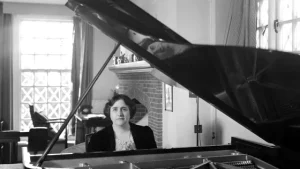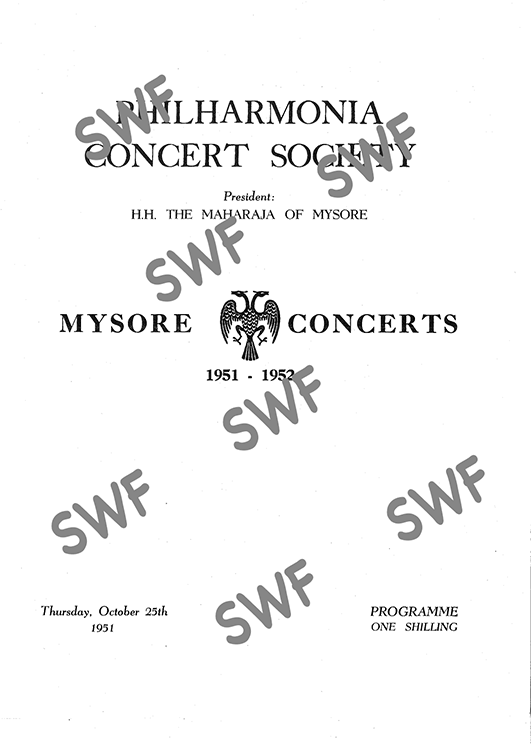Concert of 25 October 1951, London
If the name of Myra Hess is little known in France (where it seems she never played), one might add that it is far from familiar in her native Britain today. She remains celebrated mainly for a remarkable feat of defiance: the midday recitals throughout the Second World War at the National Gallery in London, which she organised and in which she often performed, even continuing to play during air-raids. Historic piano expert Mark Ainley has provided a valuable introduction to her life and work, with musical examples, on his “Piano Files” website: https://www.thepianofiles.com/dame-myra-hess/
On the purely musical level, she was often considered enjoyable rather than inspired. Yet she drew huge audiences in Britain, the Netherlands and the USA, the main centres of her activities; she appeared with Mengelberg, Toscanini, Walter, Beecham, Casals — and twice she played Beethoven’s Piano Concerto No. 4 with Furtwängler. On 3 November 1948 she took part, without a fee, in the Berlin Philharmonic’s first concert in Britain after the war, a brave and principled act by an artist from a firmly orthodox Jewish upbringing, and a controversial one for her community and even her own family. Her appearance in October 1951 was evidently less problematic, and is not mentioned in the biography by Marian McKenna; nor, sadly, was it broadcast or recorded.
This 1951 concert was significant in another way for Furtwängler. Between 5 and 22 October he toured with the Vienna Philharmonic, giving 16 concerts in 15 cities. Then he travelled to London for this single appearance with the Philharmonia, then to Hamburg for another on 27 October with the orchestra of North-West German Radio, then back to the Vienna Philharmonic for concerts in Karlsruhe and Munich on 28 and 29 October. Such a schedule looks exhausting, yet the recordings of the concerts on 22, 27 and 29 October find him on peak form, seething with energy. But this relentless activity — which was typical of his post-war career, and continued in the early months of 1952 — must surely have played a part in the subsequent decline in his health, and ultimately in his death at the relatively early age of 68.
Roger Smithson


